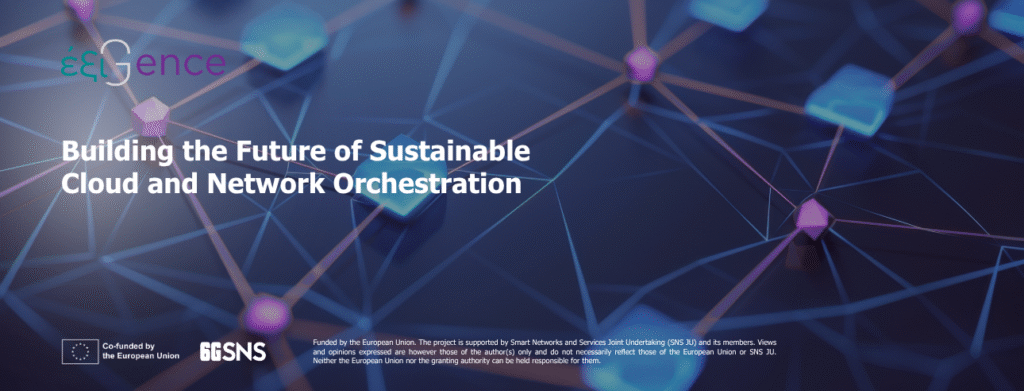
Pioneering Smarter, Greener Digital Infrastructure
The expansion of digital infrastructure – cloud systems, edge computing, and advanced networks – continues to accelerate. This growth fuels innovation but also intensifies the challenge of managing energy consumption and emissions. Our project addresses this challenge directly by designing orchestration mechanisms that integrate carbon awareness, energy efficiency, and intelligent automation into the operational core of digital systems.
The consortium unites research and industry partners around a shared vision: to demonstrate how orchestration can evolve beyond performance and cost optimisation, toward an architecture that also accounts for environmental impact. This initiative aligns with European priorities for sustainable, resilient, and sovereign digital infrastructure.
At this stage, the project operates between Technology Readiness Levels 4 and 5 – where laboratory prototypes and controlled testbeds validate technical feasibility before real-world deployment.
A New Layer of Intelligence
Conventional orchestration focuses on balancing workloads, scaling resources, and meeting service-level agreements. Our project adds a new dimension: making orchestration carbon intelligent. The system learns from real-time conditions such as energy price, carbon intensity, and renewable availability, then adapts to resource allocation dynamically. This emerging orchestration layer builds on several research axes:
- Energy-Aware Scheduling: Algorithms that shift or resize workloads according to sustainability indicators.
- Predictive Analytics: Models that forecast power demand and renewable production to anticipate optimal scheduling windows.
- Cross-Domain Coordination: Interfacing between cloud, edge, and network domains while respecting security, confidentiality, and interoperability constraints.
- Adaptive Feedback Loops: Continuous monitoring of both system performance and environmental metrics to recalibrate orchestration decisions automatically.
The outcome is an intelligent control plane capable of optimising not only for efficiency but for sustainability – without exposing proprietary architectures or compromising operational integrity.
Early Progress and Insights
Initial testbed experiments demonstrate that carbon-aware orchestration can reduce overall energy usage while maintaining the required service performance. Early findings confirm feasibility and reveal key parameters for scaling the approach.
The work remains in a controlled research environment, consistent with TRL4–5 validation. Experiments rely on synthetic or anonymised data, abstracted topologies, and representative workloads. All metrics are published in aggregate form to protect partner systems and intellectual property.
Beyond numerical results, these tests show that sustainability signals can be integrated into orchestration logic with minimal redesign of existing infrastructure layers.
Looking Ahead
The next phase of the project will transition from controlled trials to pre-operational pilots, moving toward higher TRLs and engaging industrial partners for extended testing. These pilots will explore interoperability, scalability, and integration within multi-operator and multi-cloud environments.
Future deliverables will focus on quantifying system-level energy gains, carbon reductions, and operational tradeoffs in realistic deployment conditions. The ultimate objective is a validated, open, and sustainable orchestration framework that bridges research innovation and industrial application.
By combining technical excellence with environmental accountability, the project lays out the groundwork for the next generation of carbon-aware digital infrastructure, where intelligence and sustainability converge to drive a cleaner, more efficient future.
Read EXIGENCE D2.1 – Metrics for Energy Consumption and Efficiency Metering: HERE
Author

National and Kapodistrian University of Athens (NKUA)
Mr. Panagiotis Kontopoulos obtained his four-year Bachelor of Science (B.Sc.) and two-year Master of Science (M.Sc.) from National and Kapodistrian University of Athens (UoA), in the Department of Informatics and Telecommunications. Currently works as a Research Associate in the Software Centric & Autonomic Networking (SCAN) Lab of UoA in conjunction with his Doctor of Philosophy (PhD) from National and Kapodistrian University of Athens (UoA), in the Department of Informatics and Telecommunications, with a specialisation in Artificial Intelligence, Telecommunications and Networks. His main fields of interest are Software-Defined Networking (SDN), Software-Defined Wireless Local Area Networking (SDWLAN), distributed systems, mobile communication systems and services in future networks.
